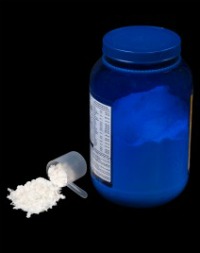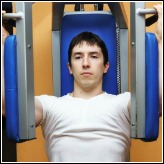Taking Sports Nutrition Supplements to Improve Performance
All the fitness and athlete magazines are full of advertisements of sports nutrition supplements. It seems like the sports health industry is working hard to promote protein shakes, bars, powders and vitamins. But do these things actually work?And most importantly, do athletes really need them, or can they perform equally well without having these supplements?
Let’s look at a few facts and myths to learn more about sports nutrition supplements.
Protein Supplements
Protein supplements do provide a lot of help in some medical conditions. For example, let’s say an athlete has anorexia. They would be willing to drink a simple protein shake rather than eat chicken, cottage cheese, or tuna. Some studies have also shown that AIDS and cancer patients can also benefit from protein supplements if they are unable to consume a proper diet. In addition to this a protein-carbohydrate supplement may also have a role to play as part of a post exercise recovery plan.

Other than that, if an athlete is taking enough protein in their sports nutrition diet, they do not usually need a supplement. You get enough protein from your regular diet (frozen yogurt, bread, cereal, broccoli, etc). No scientific study has ever proved that protein from supplements is better than protein from eggs or fish.
Protein supplements are not just costly, excess consumption can also replace vital carbohydrates from your diet. For example, if you have a protein shake and an omelet for breakfast, you will have consumed fewer carbohydrates than if you had a banana with cereal. And as you are aware, carbohydrates are required for fuelling exercise.
Other Supplements
There are a number of products available which claim to reduce body fat and build bigger and stronger muscles and of course this idea appeals to many sports people. The reality is if these products do work it is likely that they are illegal or on a banned list for sport people or that they are a health risk. Based on current research, compounds such as chromium and colostrums do not provide a substantial benefit to athletes.
There are other sports nutrition supplements that purport to increase energy supply, products in this category include carnitine, pyruvate and ribose. It would seem that none of these is likely to improve your performance in any significant way. Despite what is claimed by the marketing people, good independent evidence is very limited. But I am hopeful!
There are numerous supplements that claim to look after bones and joints. Healthy bones need an adequate supply of calcium and vitamin D. With the exception of an athlete who has a bone density problem, both these deficiencies are overcome through a well balanced diet and getting a healthy exposure to sunlight.
Glucosamine, chondroitin and other products are promoted for joint health. It does seem that long term glucosamine treatment can provide relief in elderly individuals suffering from arthritis, although there is no evidence of benefits for healthy athletes – but the thought seems to be that prevention is better than a cure.
Basically, if you want to be healthy and build strong bones and muscles you need to get enough good nutrients in your diet. You do not normally need sports nutrition supplements for that, a varied diet of everyday foods will normally do the trick. My suggestion is to very careful of urban myths and go for products with reliable research data before you spend your money on supplements.
There are however some sports nutrition supplements that do offer good prospect of improved performance. These include creatine, caffeine and buffering agents.
Creatine: This supplement can increase the amount of high energy creatine phosphate stored in the muscle and have shown to improve the performances in speed and power activities. It may also be effective in improving gains in muscle mass.
Caffeine: It has been found that a small amount of caffeine can help performances in long duration exercises and may also be effective in shorter duration exercises. The quantities required can usually be supplied from a cup of coffee or a cola drink. But for anyone who has an aversion to the beverages mentioned, supplementation is an effective way of administering the necessary doses.
Buffering Agents: In very hard and intense activities, the muscle produces lactic acid. This is both good and bad. The bad part is that the buildup of this substance in the muscle cause pain and interferes with muscle function. Bicarbonate is a buffering agent which is used to neutralize lactic acid in the same it does when dealing with excess stomach acid.
Bicarbonate supplementation is widely used by athlete whose event brings them to fatigue within a few minutes. A substance called Citrate is also a good alternative to bicarbonate and recently B-alanine supplement have shown that it can enhance muscle buffering.
Sign Up For The Latest Track And Field News And Improve Your Athletic Performance!
From
"Taking Sports Nutrition Supplements to Improve Performance" To "
Faster, Stronger, Better – Your Shortcut To Improved Athletic
Performance""
More Information In The Sports Nutrition Guide







